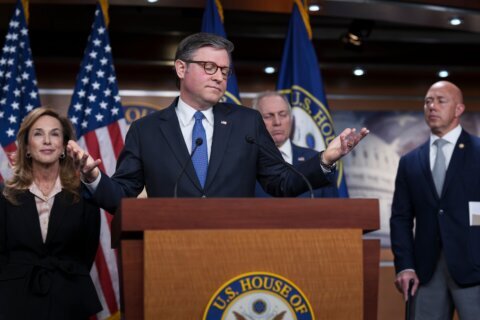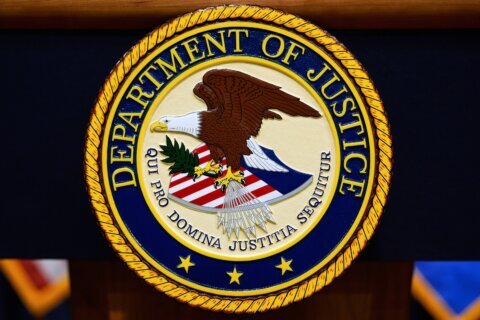President Donald Trump’s attempts to compel Ukraine to investigate the family of his chief political rival are deepening anger and concern inside the State Department as Secretary Mike Pompeo’s role in the drama comes under greater scrutiny.
A dozen current and former staff from different areas of the State Department and at different stages of their careers who spoke to CNN said the Ukraine controversy has exacerbated divisions between political appointees and career diplomats, many of whom say the department is being politicized in ways that undermine US ties to other countries.
State Department staff also tell CNN that frustration is building as Pompeo tries to steer the currents created by Trump’s personal lawyer Rudy Giuliani, who has inserted himself into foreign policy, and the President’s expectations of complete loyalty. Pompeo seems to “lack the backbone” to push back on Trump, one veteran career official said, even as the President appears to use the department to meet his political aims.
Several officials told CNN there is also fear of retaliation from an administration that they say has consistently sidelined America’s oldest Cabinet agency.
“There is most certainly a sense within the building that the potential for reprisal is present,” one former State Department official said.
The State Department has not responded to requests for comment regarding criticism of Pompeo.
Unfounded theories
Tensions within the department have been on clear display.
Texts released Thursday revealed a career State official in Ukraine was concerned the President, Giuliani and Trump political appointees were pushing for a quid pro quo: security assistance and a presidential summit in exchange for two probes that would benefit the President’s personal political interests.
One would be an investigation into unsubstantiated claims that Ukraine interfered in the 2016 US election on behalf of Hillary Clinton. A second would look into a Ukrainian businessman who hired former Vice President Joe Biden’s son, Hunter, to sit on his company’s board. There is no evidence of wrongdoing by either Joe or Hunter Biden.
And Giuliani has pushed an unfounded theory that Ukraine masterminded 2016 presidential election interference. US intelligence has found no proof of that and has consistently said Russia was to blame.
Separately, the President has also had proxies reach out to foreign allies to investigate the origin of US intelligence probes into Russia’s 2016 election meddling.
When asked Saturday whether the Ukraine investigations were appropriate, Pompeo — a former CIA director — raised no objection to the efforts to contradict US intelligence agencies and gave credence to Giuliani’s unsubstantiated theories about Ukraine.
“Governments have an obligation, indeed a duty, to ensure elections happen with integrity, without interference from any government — whether that’s the Ukrainian government or any other — so inquiries with respect are completely important,” Pompeo said in Athens.
Pompeo also touched on the separate Trump effort to have allies investigate the origins of the US intelligence agencies’ probe into Russian interference in the 2016 election. The Trump administration has reportedly asked the UK, Australia and others to help.
“If we need another government’s assistance, it’s very reasonable to ask that government,” Pompeo said.
Pompeo’s public comments in Athens were the first on the Ukraine controversy since he sent two tweets saying he would not allow State Department officials to participate in the House impeachment inquiry into Trump’s July 25 call with Ukrainian President Volodymyr Zelensky.
‘Intimidate, bully & treat improperly’
The President raised the investigations in that call. White House officials subsequently tried to hide records of it on a classified computer server reserved for national security secrets.
Pompeo excoriated lawmakers for trying to “intimidate, bully & treat improperly the distinguished professional of the Department of State.” The tweet blast raised eyebrows among career officials.
“There are legitimate reasons why you might not want to send people up to brief” on Capitol Hill, the former State Department official told CNN. “Maybe they’re not the best informed about something, maybe they’re not very good in front of Congress, but that’s not the case for an ambassador.”
More than one official observed that Pompeo’s robust declaration was doubly odd because he isn’t generally seen as willing to defend the department, especially in the face of the President’s policies or rhetoric.
There’s a sense that “at the top level … there’s no real ability or willingness to stand up to what the President wants,” a retired career diplomat said. “Even when the President has a bad idea, Pompeo is unable to stand up to that in the way [former Secretary of State] Rex Tillerson did.”
The first former official said this perception feeds “a general feeling of fear that permeates the State Department. The current veteran career official says the result “is probably the lowest morale point that I have seen” in over two decades.
Trump has publicly blasted the highly respected former US Ambassador to Ukraine, Marie Yovanovitch, and removed her from her post after complaints by Giuliani and others, according to the Wall Street Journal.
In the July 25 call, he told Zelensky, that “the former ambassador from the United States, the woman, was bad news,” according to a White House transcript. Pompeo said nothing publicly in her defense.
To learn Trump spoke that way to a foreign leader about a US diplomat was “chilling,” said a career foreign service officer who recently left the department.
Trump has also issued seeming threats directly to department staff, telling them in late September at the UN that whistleblowers should be treated like spies who had committed treason and were then presumably hanged.
Deep unease
The administration has cut the department’s staff, tried to slash its budget, left senior positions unfilled and handed important portfolios such as Mideast peace to Trump family members. Career staffers have reported abuse by political appointees. Dozens of officials have been pushed out. Dozens more have resigned.
The administration has also targeted former State officials who served in the Obama administration, retroactively classifying their emails, then informing them they have potentially violated the law; the Washington Post reported as many as 130 current and former senior State Department officials were affected.
As the Ukraine saga unfolds, a third former career official who has spent decades in the department echoed others in describing a deep unease among staff about “having to do things that border on the political defense of the President, rather than executing American foreign policy consistent with their oath of office.”
Despite the churn surrounding his agency, Pompeo kept to his schedule on a six-day trip to Europe that included a stop in his family’s ancestral village in Italy. His aides refused to answer reporters’ questions about the controversy or Pompeo’s participation in the July 25 call between the leaders, which he did not immediately own up to. He did admit to being on the call on Wednesday.
One Pompeo ally said the Secretary is still fuming about Giuliani’s claims that he reached out to Ukrainian President Zelensky’s aides at the direction of the State Department. A source close to Pompeo strongly disputed that.
It’s clear that Pompeo is trying to distance himself from Trump’s lawyer — unnamed Pompeo proxies have been appearing in media accounts saying he never promised Giuliani he would “investigate” allegations about Ukraine.
And it seems the secretary isn’t yet ready to fully cooperate with the House. On Friday, Pompeo missed a deadline to hand over congressionally subpoenaed documents related to Trump and Ukraine.
“We’ll obviously do all the things we are required to do by law,” Pompeo said during his Athens press conference on Saturday. And he dug in, repeating claims that there have been “congressional inquiries that have harassed and abused State Department employees by contacting them directly.”
Congressional aides dispute that characterization.







